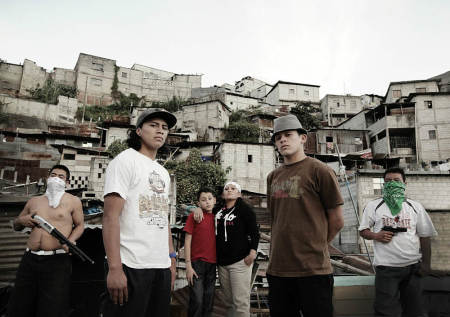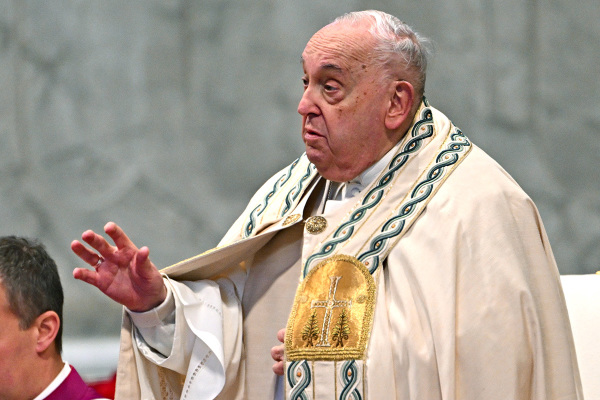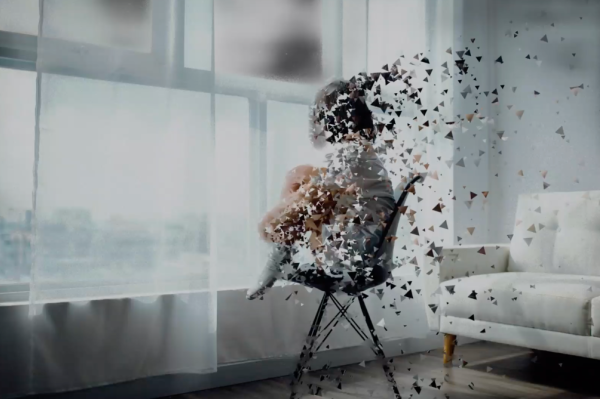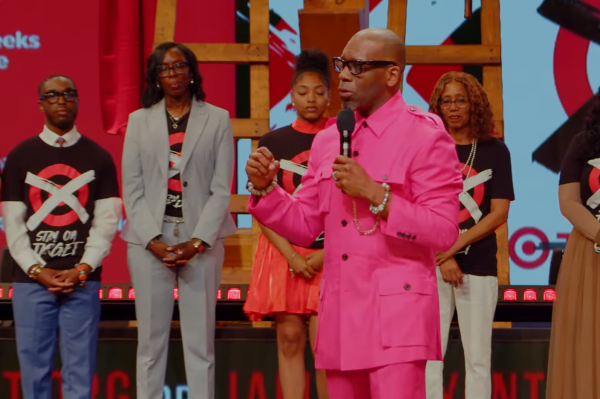'BBoy for Life' Filmmaker Talks Living Out 1 Peter 4:10 and Using Art to Fight Evil

NEW YORK — Guatemala, home to about 14.6 million people, has been plagued for decades by gang violence, some of it mindless, according to the confessions of gangsters featured in the powerful and gritty Nadus Films documentary, BBoy for Life. Coury Deeb, who co-produced and directed the film, captured the stories of everyday Guatemalans who have found an alternative to the pervasive gang life by breakdancing, a defiant act that could still cost them their lives.
"Here in Guatemala, you take a risk dancing," explains Cheez, one of the protagonists in BBoy for Life and the main organizer of his breakdancing Poker Crew. "There are gangsters. … The gangs don't like this — they really don't. If they see me dance in my neighborhood, they threaten me with death."
Gangsters locked up in a maximum security prison, "somewhere outside of Guatemala City," back up Cheez's statement.
One, while sitting on his bunk, explains to the camera how a dancer will be killed if seen dancing while a gang is active in the street. Another hardened gangbanger, incarcerated for the past 11 years, says b-boys are not rebellious like gangsters, and run from the police instead of confronting them. This is the same gangster who later says in the film that if the new generation does not get a clue, "they will have two options: prison or the cemetery."
"It's not easy to get out of a gang. We say, if you leave a gang, it's in a coffin," explains Leidy, who joined the BBoy for Life film crew to provide security just days after completing her three and-a-half year prison sentence. At the start of filming, Leidy was an "active gang member." As she explains it, "An active gang member is one who kills." By the end of the two-hour film, Leidy, exposed to the b-boy community Cheez and Gato cling to for survival and as a means of getting ahead, has made a decision to turn her life around, for her own sake and for her children.
According to the Guatemala Human Rights Commission, there are anywhere from 8,000 to 14,000 gang members in the country. The GHRC reports that 73 percent of the population in Guatemala is under 30, with 30 percent of the population between 14 and 30 years old.
"On average, gang members are initiated between 14 and 15 years of age," the organization adds. "A poll conducted by the Salvadoran University Institute for Public Opinion found that the average age of imprisoned male gang members was 23. For women, who represent less than 5 percent of jailed gang members, the average age was 21."
The Central American country has been cited as having one of the highest violent crime rates in the region, with crime fueled by "endemic poverty, an abundance of weapons, a legacy of societal violence, and weak law enforcement and judicial systems," according to the U.S. Department of State's 2013 assessment of crime in the country.
As b-boy Gato puts it, "If it wasn't for dance, I would probably be running the streets. Maybe I would be in a gang or something like that." An ironic thing for him to say considering that two years prior to filming, his older brother was killed by gangsters. Not long after his brother's death, Gato lost eight friends the same way.
"I've only seen death. It has not been easy," Gato says in one part.
He explains in another: "It's not easy to be a b-boy here in Guatemala. It's not something easy. We're always fighting to continue what we're doing ... to keep dancing. There is always a gang that obligates others to be in a gang ... and if they don't want to, the gang just kills them."
Watch a trailer for BBoy for Life in the video player below:
Deeb had the opportunity to screen BBoy for Life in April at the United Nations headquarters in New York City in an event aimed at "finding long standing solutions to social violence through film and music." This is exactly the kind of impact Deeb loves making through his work, which he sees as a means of affecting social justice and bringing about change, thus his company's motto: "More Art, Less Evil." To date, his nonprofit Nadus Films has raised more than $600,000 to produce three documentaries (BBoy for Life, Grace Surpasses and The New Sudan), and has donated $60,000 and various aid to the communities where has he filmed.
In a recent discussion with The Christian Post about how film can be leveraged to combat evil, Deeb shared how he uses his passion for storytelling to live out 1 Peter 4:10 — "Each of you should use whatever gift you have received to serve others, as faithful stewards of God's grace in its various forms."
Below is a excerpted transcript of Deeb's "CP Newsroom" discussion, followed by the full video.
CP: Your work is about using film to highlight social justice needs.
Deeb: We all have a gift, we all have a calling, and I am a firm believer that our essential calling includes the gift that we were given. For me, I used to be [a] photographer, turned filmmaker, the gift of storytelling. So my desire in 2005 when Nadus Films started, till today, is to be able to use my gifts and abilities like mentioned in 1 Peter 4:10, to administer God's grace in its various forms in the area of film. My desire is to use those gifts to empower where I'm gifted not just where I'm needed.
CP: Your most recent project involves people in Guatemala who are looking for a way out of the gang life through b-boying.
Deeb: BBoy for Life is our most recent film project and it dives into the world of Guatemalans who live in the city, many of which dance for their life. They dance to stay out of gangs, they dance to avoid the violent lifestyle that many are forced into, specifically in the ghettos of Guatemala City.
CP: How serious is the situation for those who are surrounded by the gang violence? And how serious of an alternative or an escape is something like the b-boy lifestyle for them?
Deeb: It's very serious. For all, it's a matter of life or death and the decisions that they make on a day-to-day basis, something that you and I can't relate with, especially to the extent that they live. B-boying is one form of expression that they have in their life, as opposed to joining a gang. So a lot of them will form a crew where they battle on the street or on the stage, in a peaceful way. That's their expression, that's their lifestyle. But it's very real. Gato, when we were filming him, the previous two years, he lost eight friends to gangs, including his brother. His brother was murdered, was gunned down by his house for not giving up other b-boys names, including Gato's. So it's very real.
CP: You've also done similar work in Sudan, with two documentaries, correct?
Deeb: Correct. This is our third doc. The first two films were shot in Sudan, both feature-length films focusing on the war-torn region and the rebuilding of that country. We always want our films to give back, so we do our best to impact the communities that made our films possible. In Sudan, it was putting water wells or delivering mosquito nets or medical supplies, or training, we did some pastoral training there. In Guatemala, it's providing academic scholarships to the b-boys, or ex-gangsters.
You know, when we say making films that make a difference, "more art, less evil," it's not only making a product that raises awareness and challenges the viewer to not stop at press and play. But it means giving back to the communities that made our films possible to begin with.
CP: Some people seem excited to see Hollywood actively courting Christian audiences with faith-based films. Can you comment on that, and the independent industry might get Christians or churches to support them as well?
Deeb: That's a great question, it's obviously at the forefront of a lot of Christian conversations in the industry of media. I'm a fan of good films, and I hope everybody is, so there's that balance of finding something that has a redemptive message that's good at the same time, whether it's a doc or narrative feature, whatever it is. Our desire is to make good films and we go into the marketplace. Our interest, to be honest with you, is to not make a "Christian film." We don't' know what the definition of a Christian film is to the viewer, so we don't want to be limited to some industry that's been built for one definition. So our desire is to make a good film with a human interest story that has an impact, that has a redemptive message. That's what B-Boy for Life is.
Learn more online: http://moreartlessevil.com






















